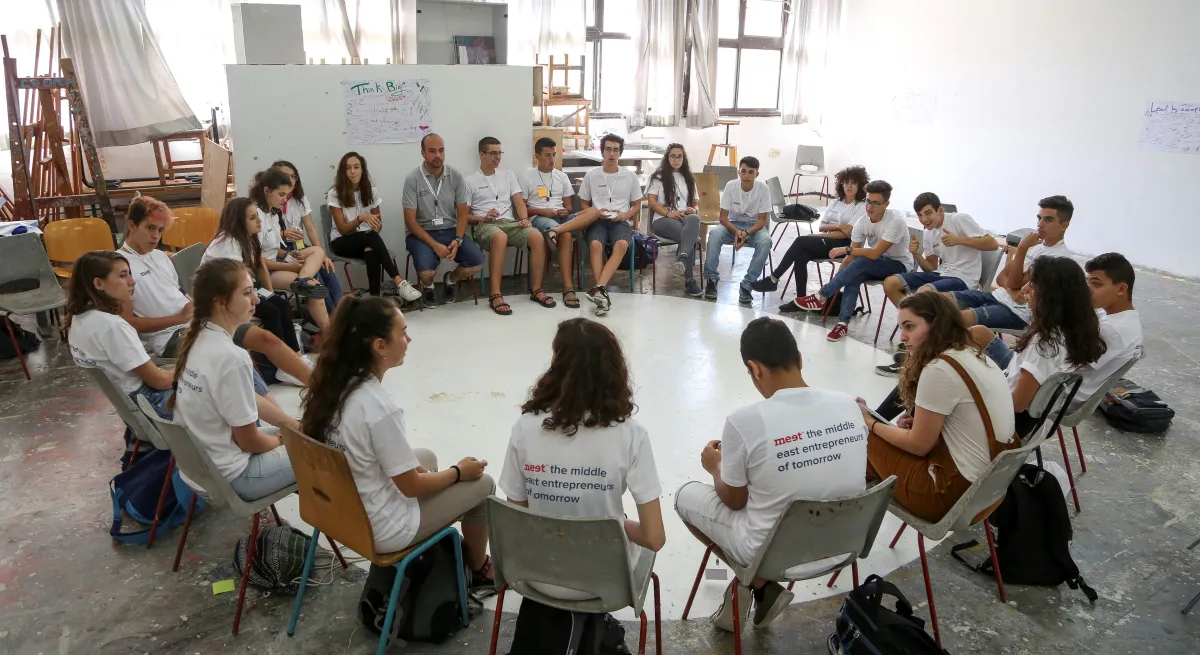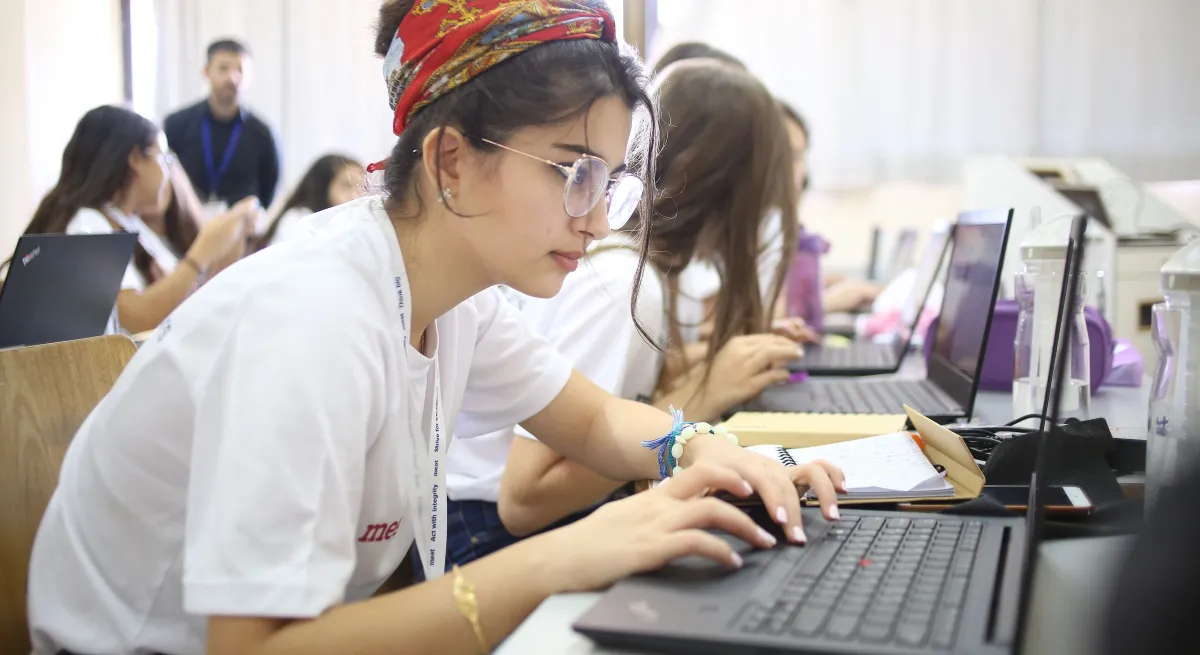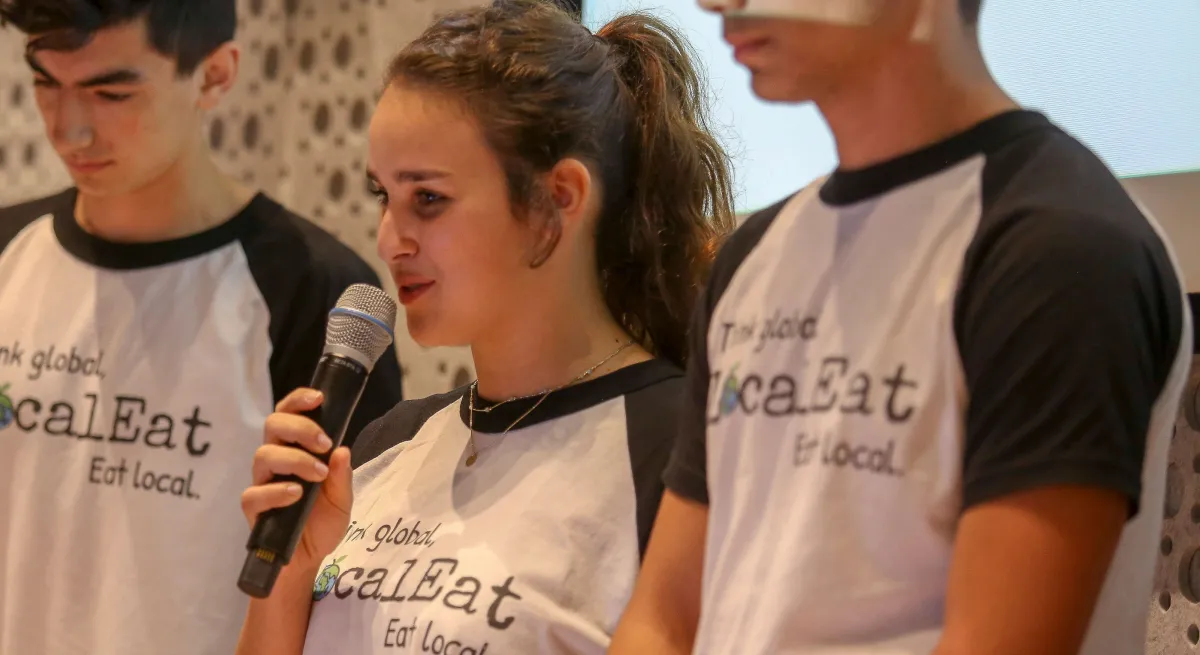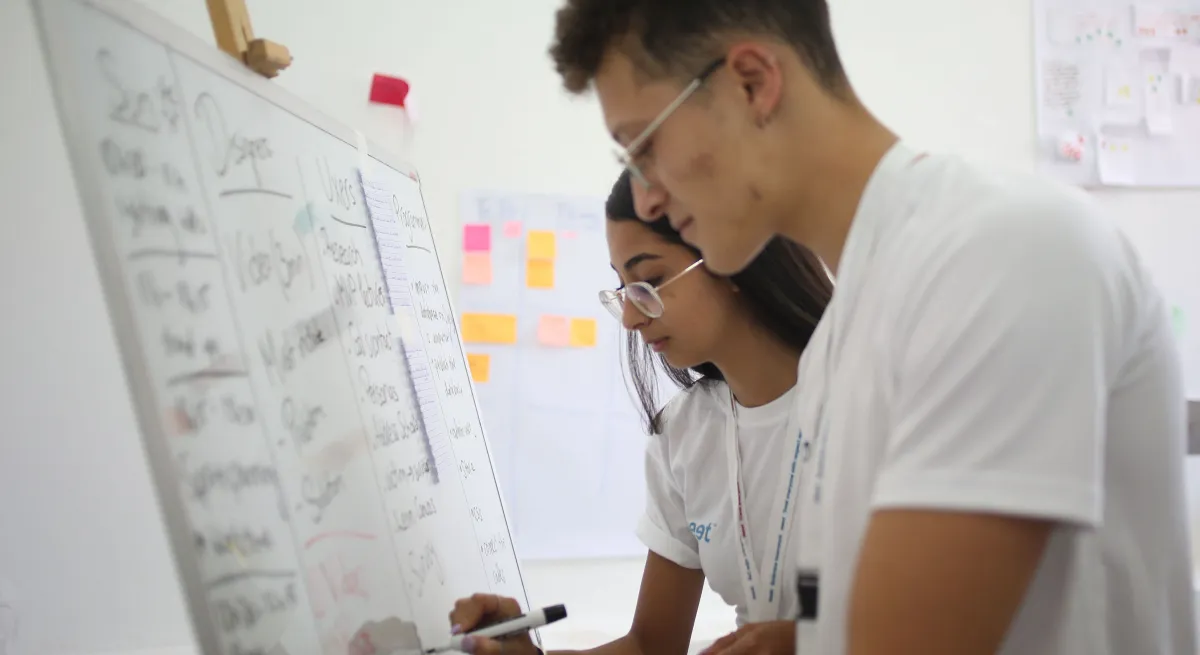Enabling minorities and women in Palestine and Israel to develop quality STEM (Science, Technology, Engineering and Math) entrepreneurship and leadership skills to create lasting, meaningful change in their communities.
31.771959, 35.217018
While Israel is called a 'start-up nation', its minorities are significantly underrepresented in the knowledge industry.
Palestinians, women, and Arab population in Israel lack access to quality STEM education and professional networks, perpetuating segregation, fear, and distrust in the region.
The Julius Baer Foundation supports MEET in introducing tools addressing the problematic wealth divide in the Middle East. By adapting its recruitment strategy, MEET ensures a 50% representation for teenagers from marginalised communities and an equal number of students from higher socioeconomic strata to forge diverse networks of friendships across the wealth divide. Further, a newly designed tech ethics curriculum centres on the power of technology to bridge the gaps and counter uneven access to opportunities.
Every year, 120 students living in segretation start their three-year educational programme acquiring a mutual set of skills, values, and capacity for technological innovation in a binational context.
Quick facts
- Israel and Palestine, nationwide
- Project support: 2022-2025
- Grant amount: CHF 550,000
- Linking Palestinian and Israeli youth (ages 15 to 17)
From being segregated...
Youth from marginalised communities have limited STEM education and career opportunities, leading to near absences of Palestinians and women in tech and entrepreneurialism while widening the wealth divide.
... to being a tight-knit skilled cadre.
Young women and men gain skills in computer science and business practices while working together in diverse and bi-national environments, networking with key people from the local hi-tech and business world.




At MEET, I was surrounded by amazing women, students from Massachusetts Institute of Technology(MIT) who taught me how fun programming can be. Businesswomen who showed me how to rock the entrepreneurship world, and other Israeli and Palestinian girls just like me, who supported me when things got hard.
OUTPUT
Today, MEET reaches 120 students per new cohort. In their first summer, the first-year students created more than 35 group projects based on computer science and entrepreneurship skills.
OUTCOME
MEET's alumni community counts more than 900 leaders in the region, significant success in social entrepreneurship.
HIGHLIGHT
The project ensures equal representation per cohort: 50% Palestinians, 50% Israelis, 50% young women, 50% young men, joining youth from the periphery of Israel and the West Bank with those from the centre.
Shaping tomorrow's leaders
- The high-tech ecosystem in Israel and Palestine benefits a narrow group of already established people, leaving behind minorities.
- Palestinians constitute 20% of the country's population, but only 4% of high-tech workers. A fact that contributes to the feeling of exclusion.
- The result of the booming high-tech industry is a split economy, perpetuating the Israel-Palestine conflict.
- MEET began bridging this educational gap with its first courses in the early 2000s.
- Partnering with MIT, the MEET programme connects students with diverse socioeconomic backgrounds and provides them with the tools, skills, and knowledge to succeed in the business and high-tech industry.
- By creating computer science and entrepreneurship projects together, the region's youth become personally and professionally connected.
- MEET helps to create a generation of leaders who know how to work across political divides from a young age.
